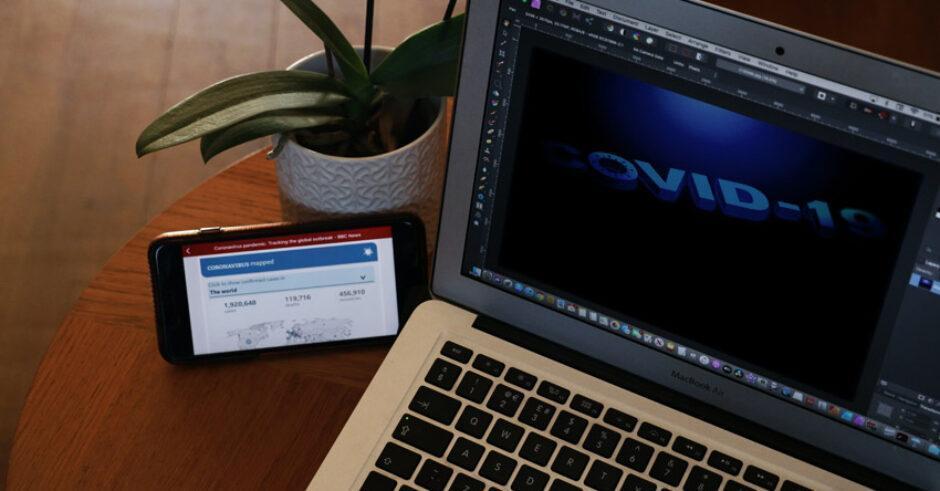When I go through my LinkedIn feed these days, I find many great tips on how to work better remotely. As someone who can work from anywhere, I found it extremely useful. I even asked myself what stopped me from implementing those tips years ago. My highlights included separating your office space from your standard living space, develop a routine, and don’t forget to check-in with people, also on non-work related topics. I thought – ah, I knew I should not have worked from my living room sofa or a hotel bed. Now that working from home is the new normal, I can focus on creating a much more productive workspace. But then, I couldn’t.
Here I was, thinking where I should create my workspace, what type of routine I can have, and which of those tips I can share with my colleagues, reports, friends, family, and clients. Then I realized it doesn’t work for me. Not because those tips are not great tips for typical HomeOffice setup, but because it doesn’t work for me right now during COVID-19 pandemic. Why?
Because this is not a standard work from home transition & we need to remember that.
Those are my top 3 things to keep in mind about the current working from home transition. As a leader with direct reports, I had to get mindful so that I can support myself and my people better. I share it because you might want to consider it too – if not for yourself, then for the people you lead.
- Remote work is often a choice. Now it’s not. Most people make an educated choice, whether they want or don’t want to work from home. I know people that quit their office job because they wanted to work remotely and couldn’t. However, the remote office is not a fit for everyone. I also know people that can’t or don’t want to work from home. However, during those times, we don’t get to choose. When one feels forced or trapped in a situation, their whole attitude towards it changes. Meaning, many people are happy to work remotely suddenly, and some people are not excited about it. Those who are not happy might feel trapped because they never got to choose. We, as leaders, can support in identifying those who struggle, offer them empathy and support. Even acknowledging that the situation is not optimal for them is helpful. Ignoring it makes people feel that they are alone in it.
- Not everyone has a workspace. People that work remotely regularly would often have their home office set up for that. That can include a separate room, screens, camera, microphone, internet connection, and anything else one needs for their work. Many of the people that transitioned to work remotely recently don’t have their whole office setup. They might have to work from the kitchen because they don’t have an extra room or because their partner is taking the office room. They might have no camera, screens, office chair, a desk, a phone, good internet, and whatnot. As an employer, we can try to provide individuals with the office equipment they might require to perform their job, but we can’t always solve the workspace problem. If the whole family is at home and both partners work from home, one might not have enough room to work. Hence, we have to accept that people are going to be interrupted and distracted. We can support people that are being distracted by helping them to prioritize so they can focus on getting the most critical topics done in their pick hours. Also, we can help them by not getting annoyed, telling them that it’s ok, and allowing them to have the flexibility to step out of their regular working hours to care for their kids and other more urgent interruptions. In short, accept they will work less, acknowledge it, and help them focus their work.
- Life outside of work changed. People that regularly work from home would have their usual routine where they do things outside of work. They might meet friends or have hobbies and activities such as going to the gym, improv/theater class, and anything else one does in their own time. During the COVID-19 pandemic, we are in a lockdown. We don’t go to the gym, and we don’t meet friends in a Cafe place, we don’t go do the cinema, we don’t do any of our usual outside of the house activities. In some countries one can go outside by themselves to do some sport; in others, people can’t leave their buildings. While some people are used to be at home, also during their regular Home Office life, others don’t. This transition can feel isolating, lonely, and draining for many. Not all activities can be done remotely. It does not feel the same to meet people online only (I tried a remote party; it was interesting). Therefore, now more than ever, mental health is as important as physical health. While many companies offer remote fitness type of classes, also remember to provide social time. It can be anything from remote lunch, beer time, painting class, and listening sessions. Now is the time to care for people personally, not just professionally. Healthy employees are productive employees. Not to mention that this is our social responsibility.
To summarize, working from home is often a choice one makes. While a lot of the tips for remote work out there are useful for a person who made that choice, we do need to consider the unique circumstances of this working from home transition. If you are a leader, check-in with your people, care for them professionally and personally.
If you have more tips, let me know. Stay safe, sane, and healthy.
Bar


